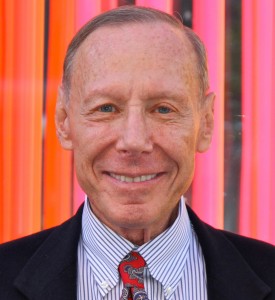By Alison van Diggelen, host of Fresh Dialogues
There are countless Silicon Valley wannabes all over the world, from Silicon Wadi in Israel to Silicon Glen in Scotland, but none rival Silicon Valley’s track record. Why is Silicon Valley the premier center of innovation? What is the secret of Silicon Valley’s success?
I joined Morton Grosser, a Silicon Valley venture investor, consultant and inventor in his Menlo Park workshop to discuss the history of Silicon Valley and the key ingredients that allow innovation to flourish here. As a former director of eight high-tech companies and strategy advisor to such stalwarts as Hewlett-Packard, Apple, Kleiner Perkins and many Fortune 100 companies, Grosser (or Mort, as he prefers) provides a unique perspective on what makes Silicon Valley successful.
Why did Silicon Valley grow here?
“Silicon Valley has an extraordinary meritocracy culture…it’s an accident of time and place.”
What is the Vital Ingredient?
“We’ve had a unique surplus of the four things that are necessary for an entrepreneurial culture…a great university or universities, smart young entrepreneurs, a source of capital, but most leave out the most important part:
What you really need is a culture of meritocracy. You need horizontality.”
Download or listen to this lively Fresh Dialogues interview
We welcome feedback at FreshDialogues.com, click on the Contact Tab | Open Player in New Window
The Father of Silicon Valley, Fred Terman‘s epiphany
“He noticed that science and engineering seminars were taught by 23-year-old graduate students, because those are the people making the progress…this was anomalous for the industrial world… Terman noticed this 70 years ago and he wrote about it in “Steeples of Excellence.” He said, if you could move this principle out of academia into industry you would have an enormous advantage over many other companies.”
How to build innovation – the Silicon Valley Way
“It’s not just the capital…it’s the intellectual environment, the ambiance, the acceptance, it isn’t merely mentoring it’s accepting…To build a culture that is unique; in which industrial companies would have the same structure, where young people have a voice, where new and creative ideas … flourish.”
On Creativity
“You don’t have to teach children creativity, you just have to get out of their way.”
Want to learn more?
The book “Regional Advantage” by Berkeley’s Dean of the School of Information, AnnaLee Saxenian, compares Route 128 (the Boston innovation hub) with Route 280 (Silicon Valley) and explores the reasons, as Mort puts it, “Why Silicon Valley succeeded and Route 128 did not… It comes down to the difference between horizontality and verticality.” In summary: Boston developed a system dominated by independent, self-sufficient corporations, whereas Silicon Valley developed a decentralized but cooperative industrial system.
Check out the video: The SECRET History of Silicon Valley by Steve Blank
To explore more exclusive Fresh Dialogues interviews, here are the ARCHIVES
Check back soon for more highlights from the Morton Grosser interview



